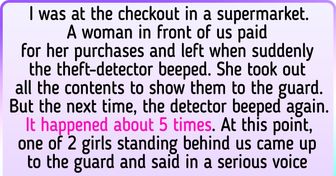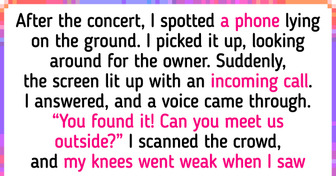10+ True Stories With Endings No One Saw Coming

One of the main signs someone is tracking your phone is the gadget running out of battery in no time. Batteries do age along with your phone, but if you’ve got it just recently, that’s not normal. Some malware might be using the energy to scan your device and send the data to third parties.
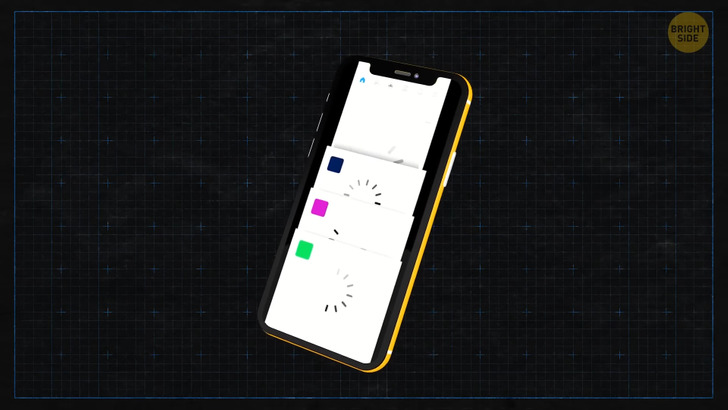
Does your phone freeze or take forever to load web pages? Some malware might be running in the background, preventing the gadget from operating normally. In this case, you may also have trouble quitting apps. Sometimes, it’s even necessary to restart your phone.
If you open a website you often use, and it has a different design, or if one tab looks different from the rest on the same page, that’s another warning sign. It can be the work of “proxying” programs. It means they’re sitting between you and the Internet, giving you their own fake instructions. Even your dial-pad can change its shape and color when someone’s got control over your phone.
There are some apps your phone manufacturer or service provider pre-install on your gadget. Google them to make sure they’re legit. If they aren’t on the safe list, and you don’t remember installing them — someone’s after your data. Those apps can record your calls, read your texts, get access to your social media and online banking apps.

Scammers can mess with your phone camera remotely. You can find pictures and videos on your gadget that you don’t remember taking. The same is when your phone flash goes on and off by itself. In this case, the camera app will eat up a lot of battery and heat your phone up even when you aren’t using it.
When someone gets access to your gadget, they can also log into all your accounts, from e-mail to fitness apps. You’ll know it’s happened when you suddenly have new passwords, get signed up for new things, or see the emails you haven’t opened marked as read. Someone might be using your data to start new accounts or get lines of credit in your name.
Some cyber-criminals can use your phone to make expensive calls or send texts abroad and to premium-rate numbers. They often sell this service to their clients to make a profit. The unwanted apps they install on your phone to send data are also super hungry for traffic. You’ll notice if they’ve been active at the end of the month — when you see a crazy data bill.
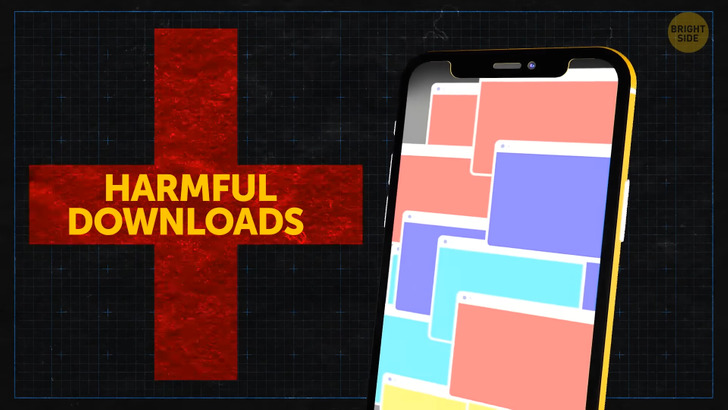
If you find bookmarks to suspicious websites in your browser or start seeing pop-ups way too often — that’s likely another form of malware. People who spread adware get money every time you click on those pop-ups. Plus, they can lead to harmful downloads or steal your personal data.
When your friends or colleagues tell you all of your e-mails now go to the spam folder, it must be the work of cyber-criminals. They can change your email configurations to make your e-mails go through an unauthorized server. This way, they’ll be able to read them all.
Strange noises or an echo during calls, dropped calls, not being able to phone someone when you have good reception — all this is another warning sign. It might be a technical problem, of course. But if it comes along with other symptoms, someone most definitely has control over your phone.
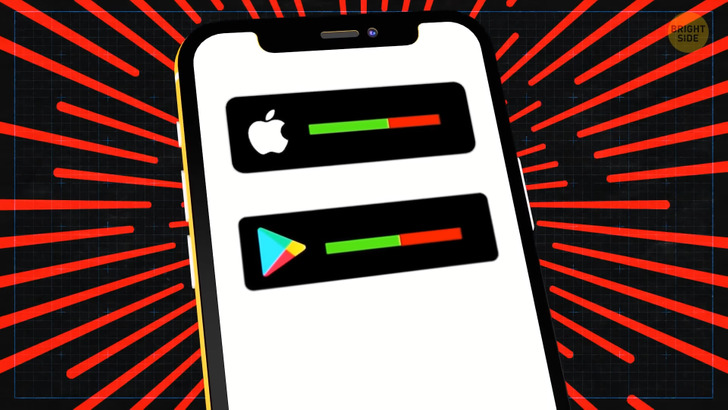
Some scammers get access to your phone through the apps you download from the App Store or Play Store. When you download them, some applications can send data to foreign servers. This data can include IP addresses and even your location. Other cyber-criminals create phishing screens to get access to users’ browsers and open certain web pages. If their attempts succeed, they install even more malicious programs.
Some apps aren’t harmful per se — they just aren’t protected well enough. Cyber-criminals find a way to get inside those apps and use them as a back door for their business. Employers or people who don’t trust their significant others sometimes manage to install tracking apps on their phones. These apps let them know where exactly the gadget owner is at all times. You can leave your device alone for only a couple of minutes — it’ll be enough to install that sort of software.
Every time you’re using a public Wi-Fi network, you risk running into a man-in-the-middle that can steal your passwords. Scammers often name their network after a nearby café, hoping you’ll connect to the fake one by mistake. They’re also after the browser cookies for your Facebook or Skype sessions. This data can be used to get full access to your accounts.
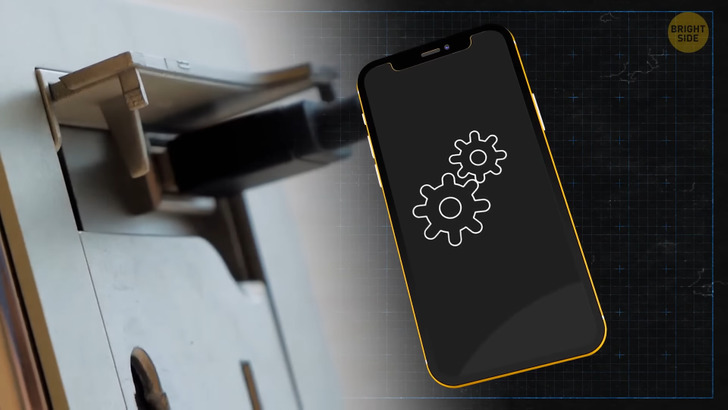
When you plug your phone into a public charging station at an airport or a hotel, it’s not only about refilling its battery. A standard USB cable can give away your device’s name and type, its serial number, the manufacturer, operating and file system information, and electronic chip ID! Some older Android models automatically send out all the data kept on their hard drive once you connect them to a computer. So when you charge your phone at someone’s home or office, you expose your data to them.
You can get a text or an email with a link to your friend’s photo they want you to see ASAP. Or it might be some important document on how to get your tax return. As soon as you click the link in that phishing message, you’ll either be asked to provide your personal data or download an app that’ll steal it from you.
Online criminals sometimes get access to your phone data through iCloud or your Google account. They might offer you to pay to get your photos, phone books, and messages back. They can also do it to get their hands on your saved passwords. Then they’ll be able to log into all your accounts in a domino fashion.
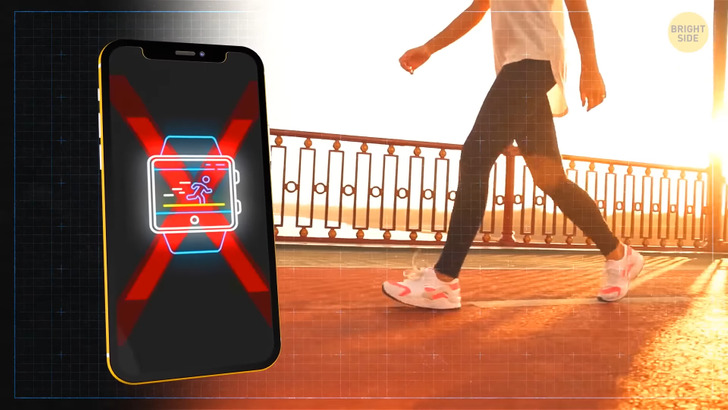
If they’re fast enough, data thieves can make use of any bug in the operating system to do their business before the issue is solved. Even a hardware problem can lead to data leaks. To protect your gadget and personal data, download apps only from official app stores. Google the apps you want to install but haven’t heard much about. Read reviews from other users to stay on the safe side.
Regularly check your phone for the applications you don’t use or don’t remember installing. Once you find such apps, delete them. Always read all the permissions an app requests before you run it. If it asks for too much, double-check whether it’s worth it. A step calculator doesn’t really have to know your banking details or share your data with partner fitness companies.
Get yourself mobile security apps with call blockers and firewalls. It’ll protect you from any suspicious downloads. Messengers that use end-to-end encryption will help you keep your communication personal. Get a VPN application if you have to use public Wi-Fi networks. Don’t ever connect to suspicious networks, like “freeWi-Fi123” or “Wi-Fi_for_everyone.”
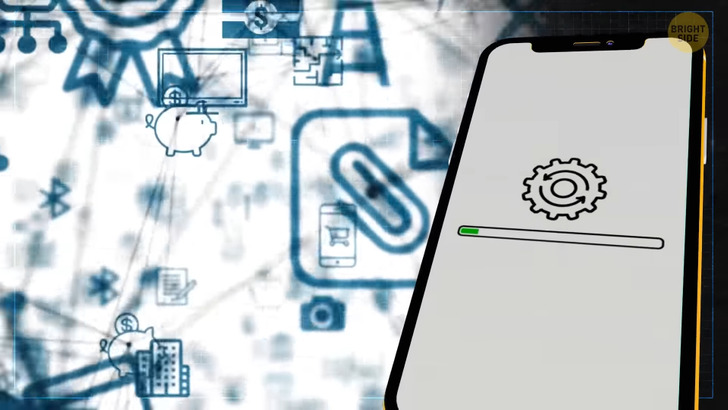
Always keep your operating system up to date. This way, you’ll get all bug fixes and security patches before criminals use them as a back door to your data. Don’t click on any suspicious links you receive through texts or e-mails. Ask your friends if they’ve indeed sent you the message. Double-check it with the company that has offered you some perks.
Never share your passwords or important data, like banking details, over the phone. Don’t activate your personal hotspot in public. Keep your mobile data and Wi-Fi off when you aren’t using them. This can stop malware from updating and working in the background. Carry a power bank or a wall charger with you to avoid public charging stations or someone else’s computer.
Once you realize someone’s got control over your phone, install and run anti-malware software. It’ll scan your phone for any mean applications and suspicious processes running without your notice. Delete all those bad apps immediately. To be safe, also get rid of all the apps you’d installed just before the problems started.

Change all your passwords ASAP. Your phone can generate a good one for you. Tap on the password field and choose Use Strong Password to keep the one your gadget suggests. In iOS, it’ll have 19 characters in 3 batches of 6 letters and numbers separated by the “minus” symbol. Activate two-factor authentication for all your cloud storage services.
If the problem doesn’t go away, factory reset your phone. Before you do it, make sure you have all the important data backed up. For iPhone, activate iCloud Backup in Settings — Storage and Backup. For Android, go to Settings, tap Accounts, select your Google account, and make sure all the apps and services have been synced recently. You can also transfer important photos, videos, and other files to a computer or flash drive. And don’t forget to save your contacts and calendars to the cloud.







